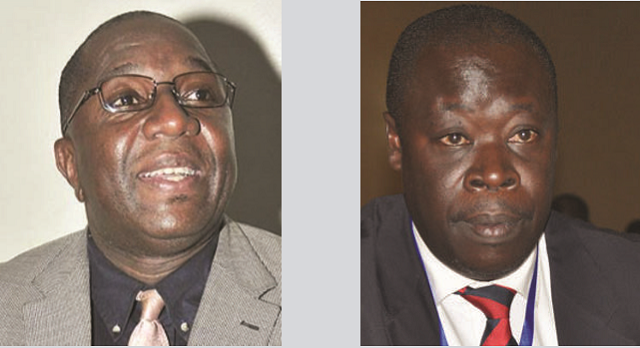
Jane Kajuga, the spokesperson of the DPP’s office told The Independent that a decree had been made and the matter forwarded to the execution department of the high court.
The convicts have appealed the November 11 court ruling that found them guilty of defrauding pensioners’ money to the tune of Shs88.2 billion. And Kajuga fears that disposing off their property could become difficult, especially if the directorate is served with a court order stopping them from continuing with the process.
Kajuga’s fears, according to Justice Gidudu, are the reason as to why Uganda is limping as other countries in the region are making progress in the fight against corruption.
While delivering a keynote address on the ‘Best Practices and lessons learnt in the fight against corruption, he said government’s continued lip service is what’s making the country lag behind in the fight against corruption. To him asset recovery is very critical both during and after conviction. He said because there is no political will to ensure that this happens, even when courts make such rulings, they end up being fought.
“It’s sad when courts shoot at each other. The anti-corruption court here was taken to court. When it was established in 2009, for six months it didn’t work. In fact the case is still there. Week after week we receive injunctions. There is always aggression against weapons that fight corruption,”he said noting the frustrations that his office faces.
As the anti-corruption officials fear that their efforts could come to naught, President Yoweri Museveni has this year declared a new war on corruption – atleast in words through his ‘Kisanja Hakuna Mchezo’ loosely translated as “a term of no foolery”.
Museveni declared his renewed efforts to fight corruption during the swearing in of his new Cabinet at State House but more ardently during the 2016 State-of-the-nation address in May. During his speech, Museveni compared officials who ask for bribes from foreign and local investors before establishing businesses here to rodents that eat the family’s stored food. He said they would this time be exterminated. He said he has received some bit of information about them. Despite the tough talk, and six months down the road, nothing has happened – and the corruption-wary public and crusaders are starting to say it is the usual Museveni barking without biting.
Even when high profile individuals have been pointed out to have been involved in corrupt activities, the state has been lenient with them such that some are even still serving public service.
What perhaps is still fresh in people’s minds is the 2015 commission of inquiry into the graft at the Uganda National Roads Authority (UNRA) that unearthed hair rising corruption in the public sector but decisions about these are yet to be made. Some of the other high profile corruption cases that have raised people’s eyebrows over time include the CHOGM saga in 2007 which became public in 2011 when high profile people including then-Vice President Gilbert Bukenya were implicated for mismanaging billions of shillings meant for the CHOGM summit, the Global Fund scandal in 2008 when money meant for malaria and tuberculosis drugs ended up in the pockets of a few, the NSSF Temangalo land purchase that put then Security Minister AmamaMbabazi on spot, and the Kazinda scandal in the Office of the Prime Minister in which billions of shillings was swindled in a syndicate involving several ministries.
It’s because of such cases that continue to happen that experts say Uganda still has a long way to go to win the corruption battle which requires commitment.
Gidudu gives an example of Tanzania where the Anti-corruption Court has just been established this year but the court has got 10 judges yet in Uganda there are only two judges and three magistrates in the Anti-corruption Division.
In Rwanda, he says, even without the Anti-Corruption Court and only an ombudsman, cases are handled immediately as they happen. Gidudu seems to know why things are different here. “People here use political lenses to weigh criminal liability. In Rwanda they remove political lenses when dealing with corruption issues,” he says.
“A country’s strides are not determined by what leaders say but what’s done and the available infrastructure,” says Gidudu.
****
editor@independent.co.ug
 The Independent Uganda: You get the Truth we Pay the Price
The Independent Uganda: You get the Truth we Pay the Price



